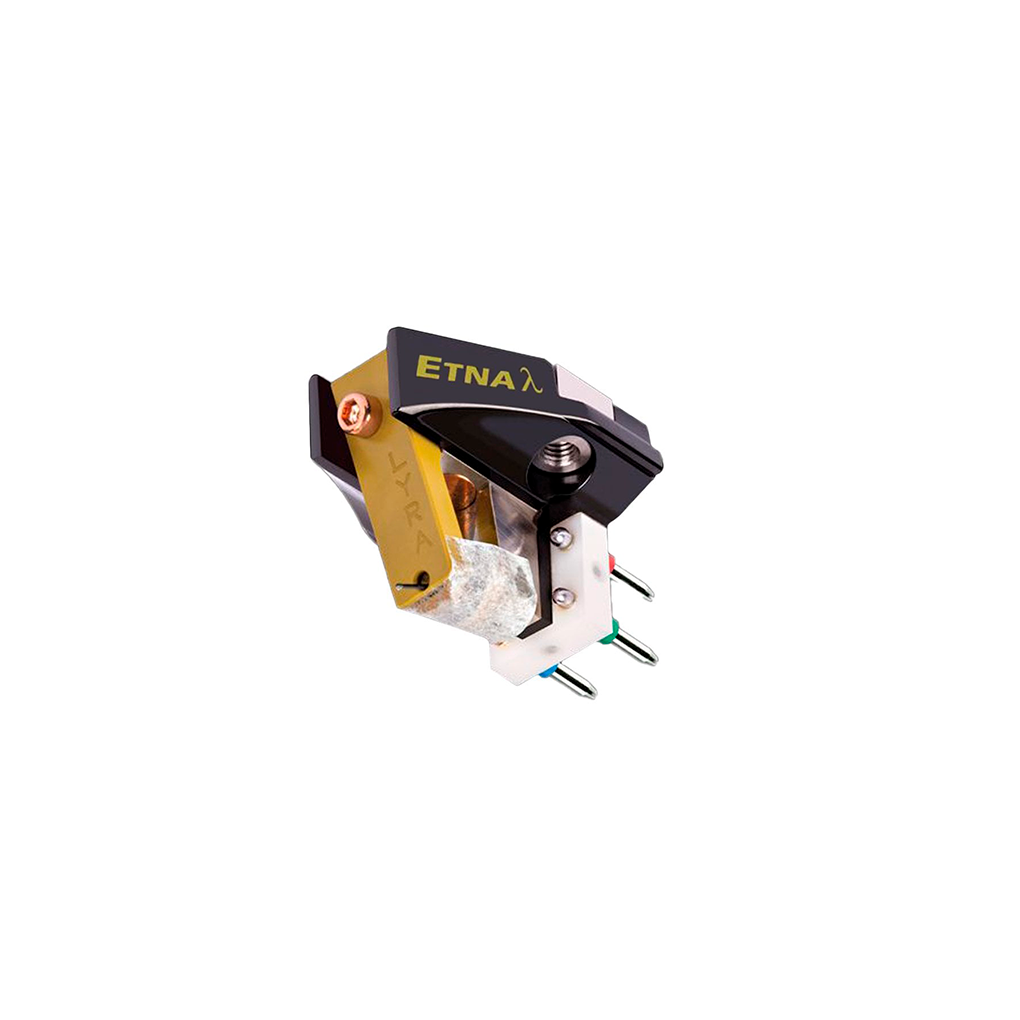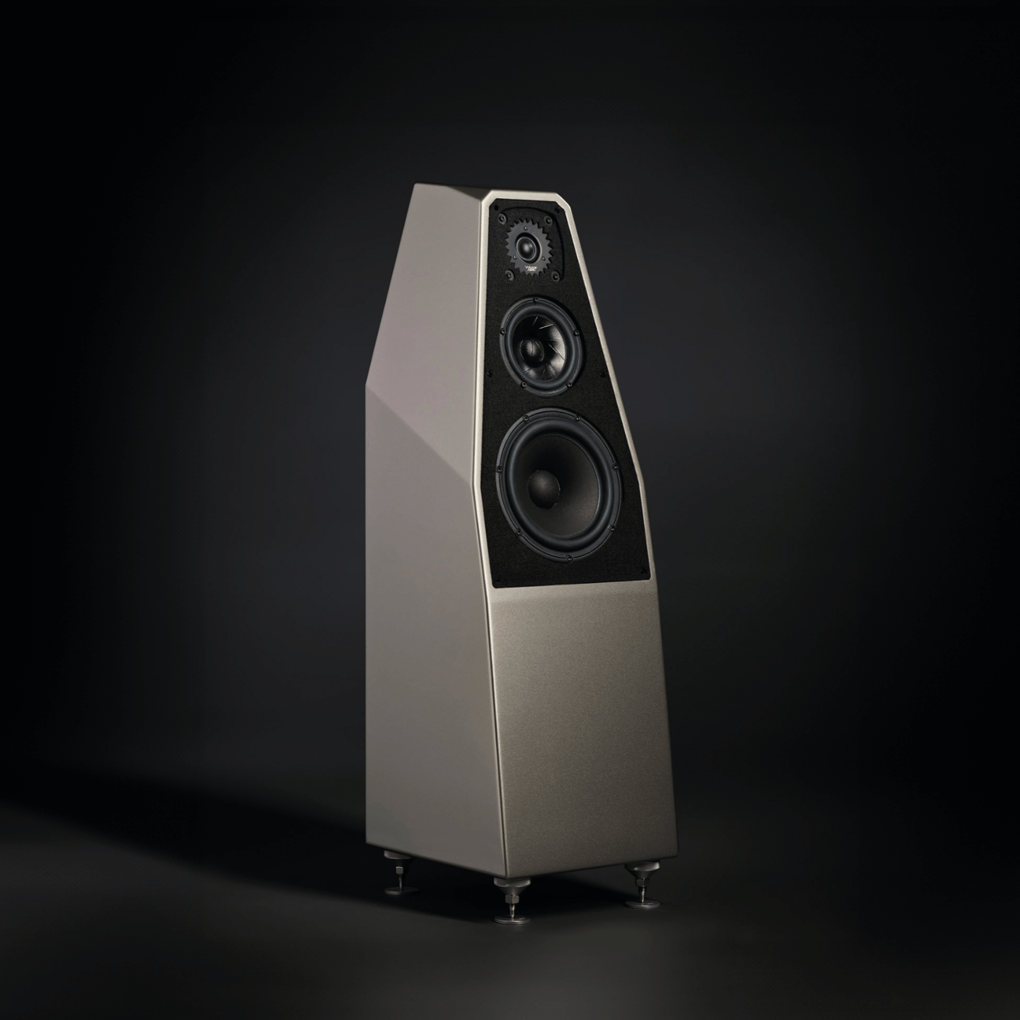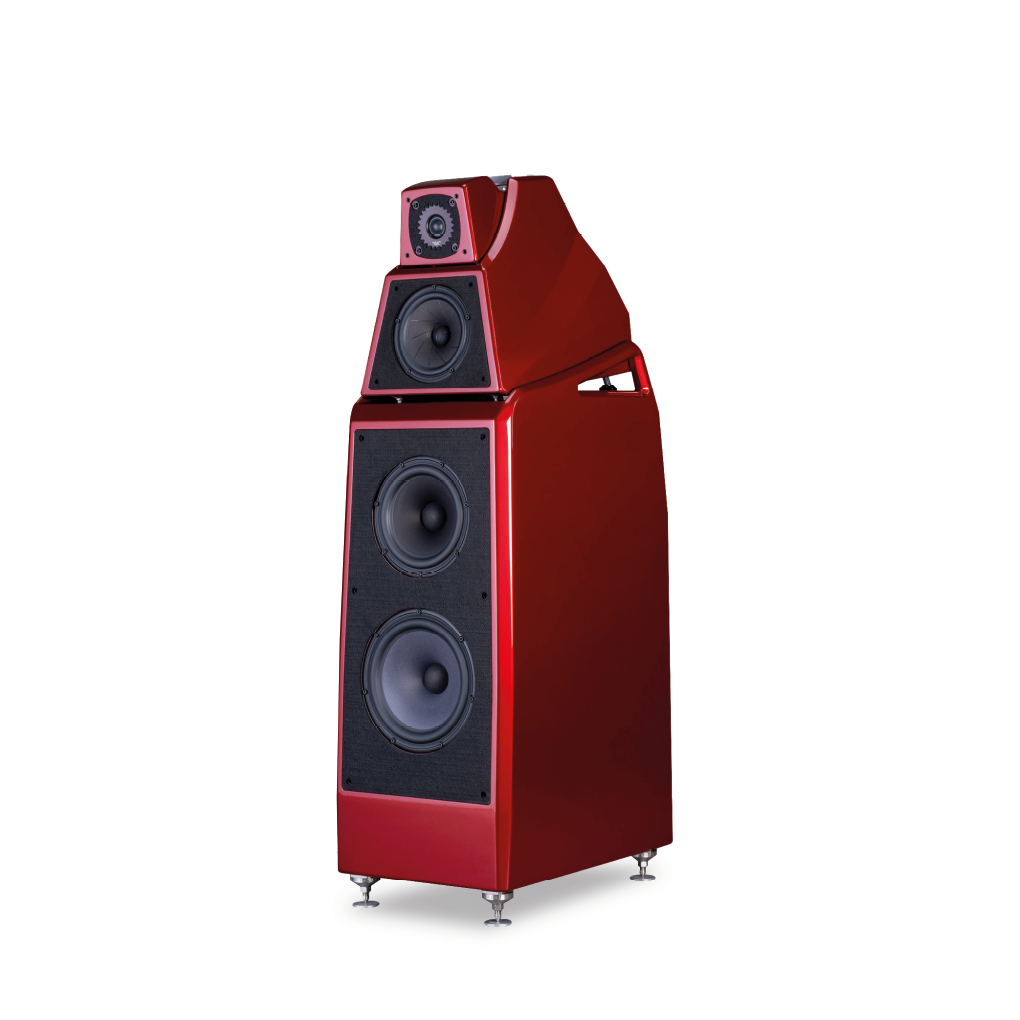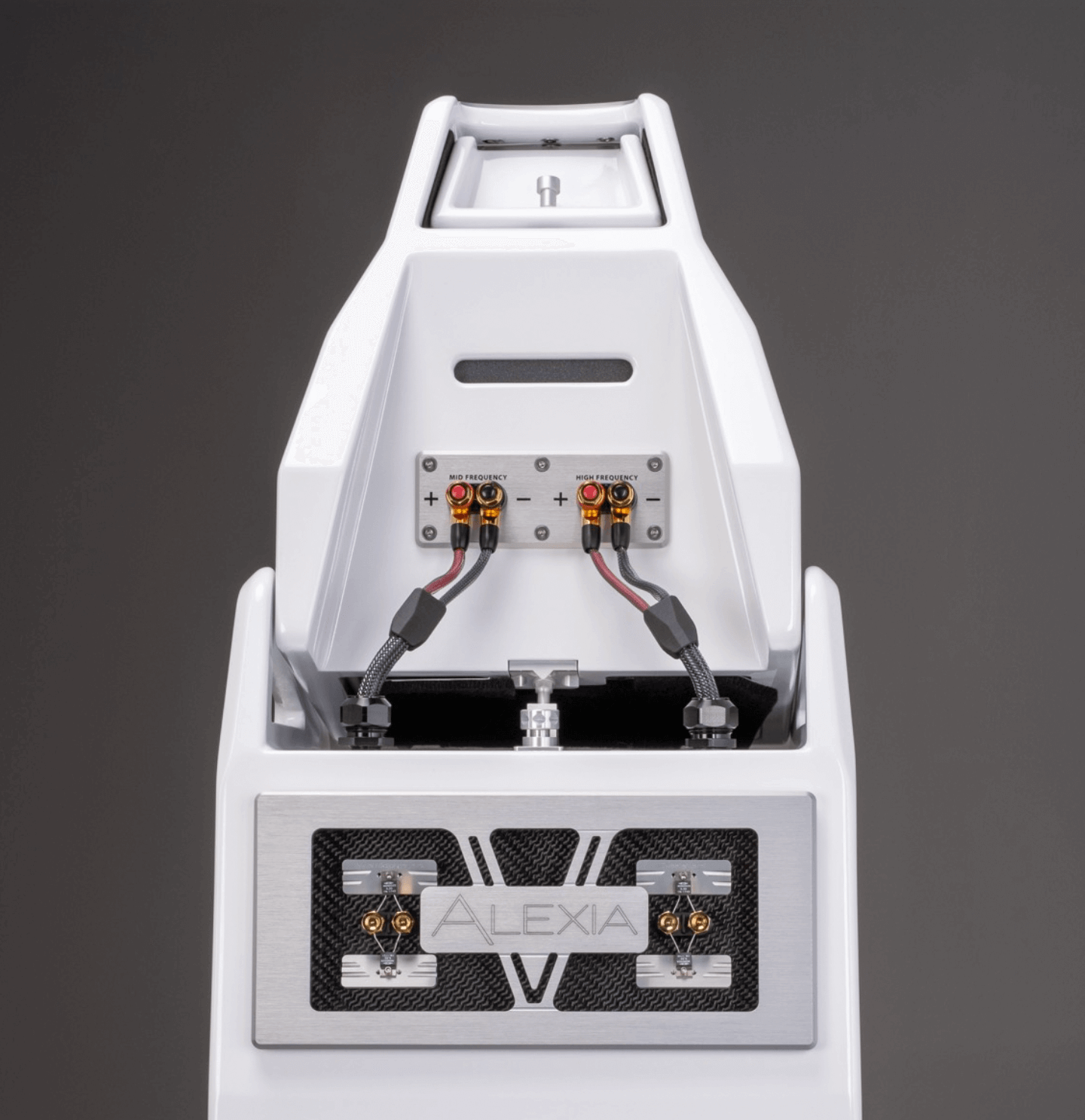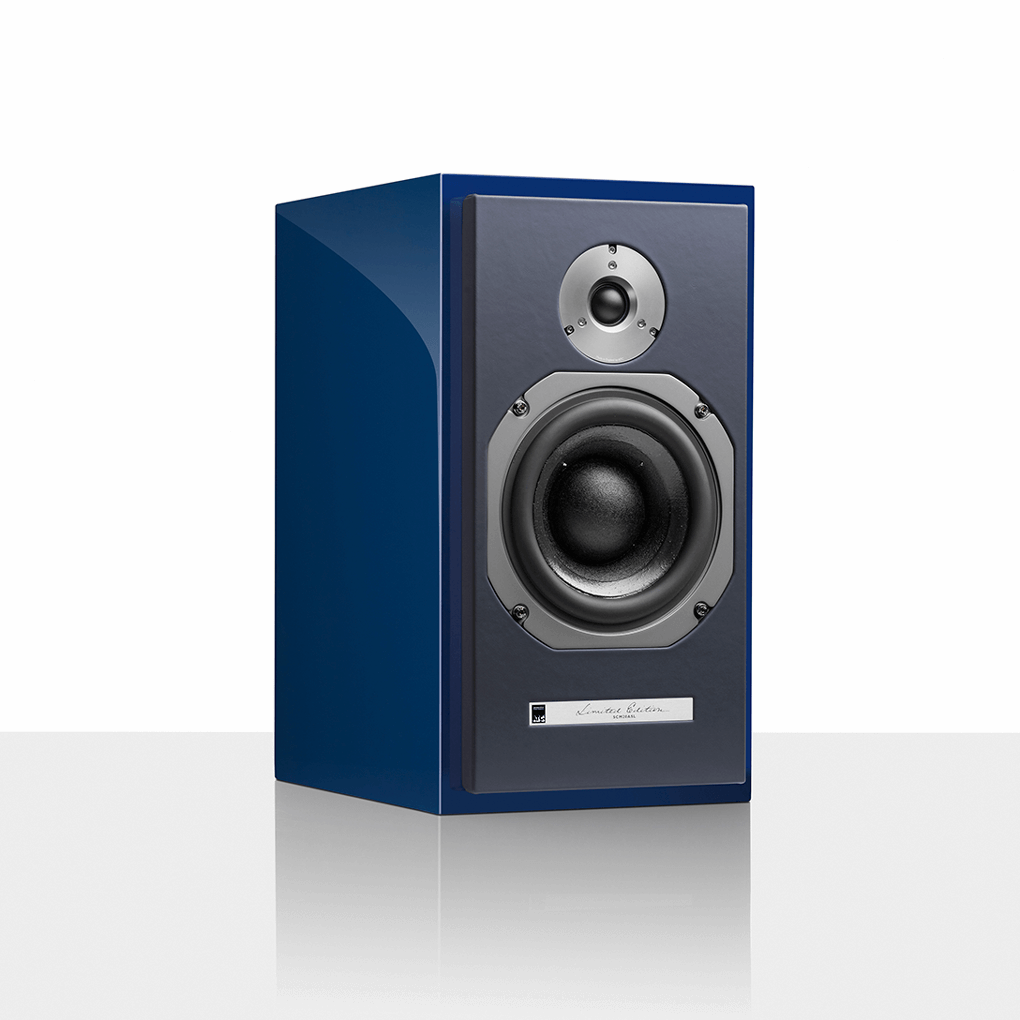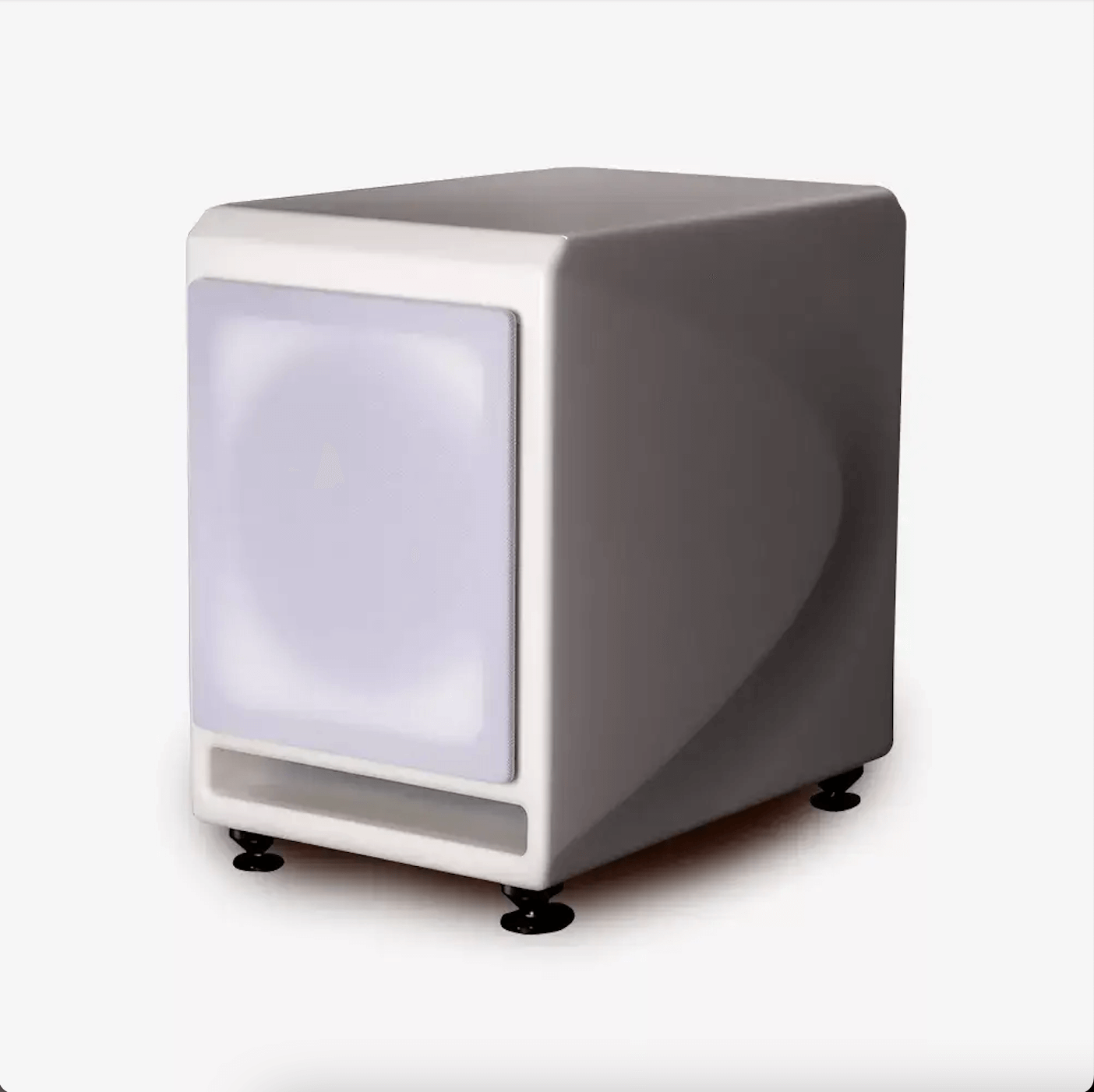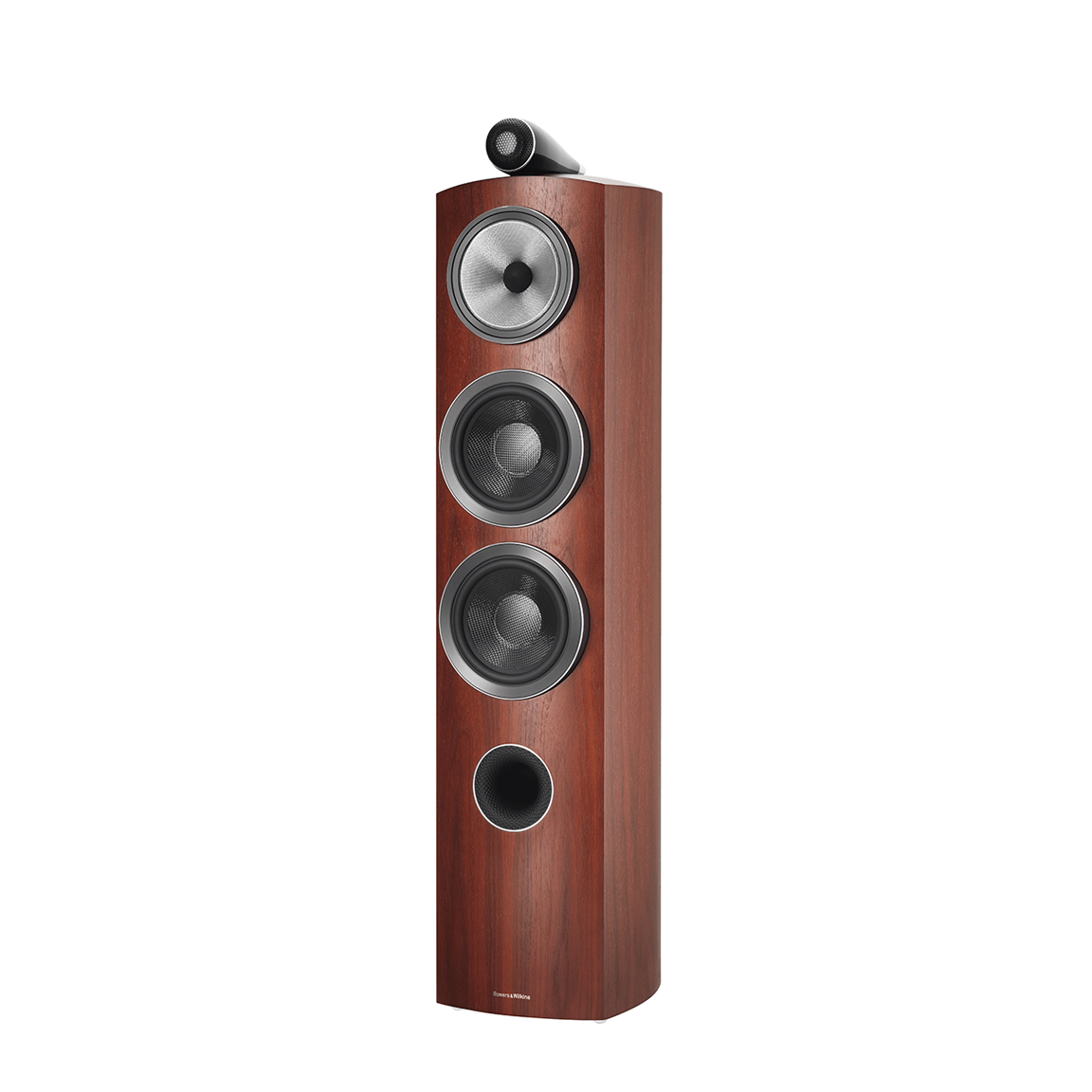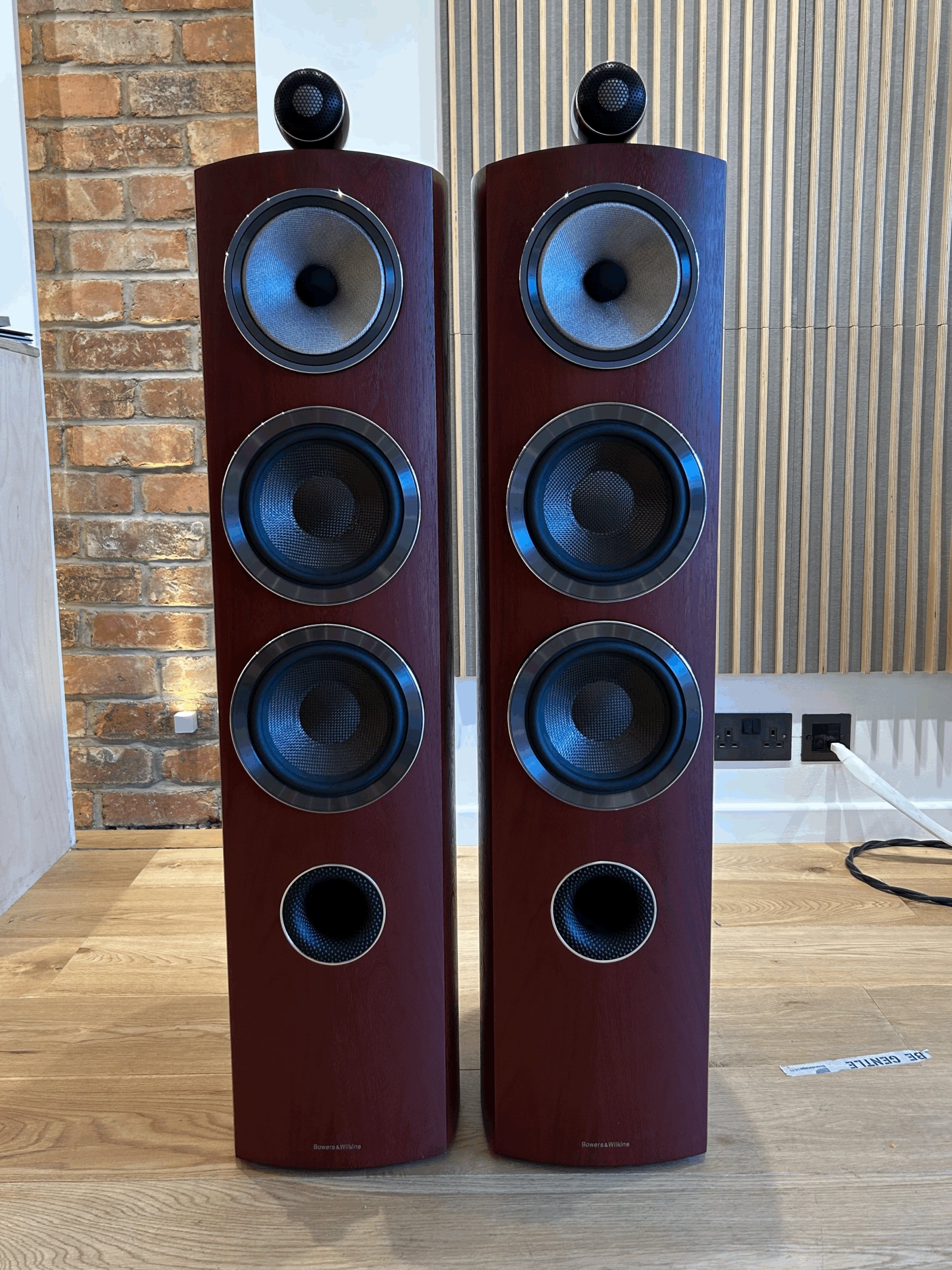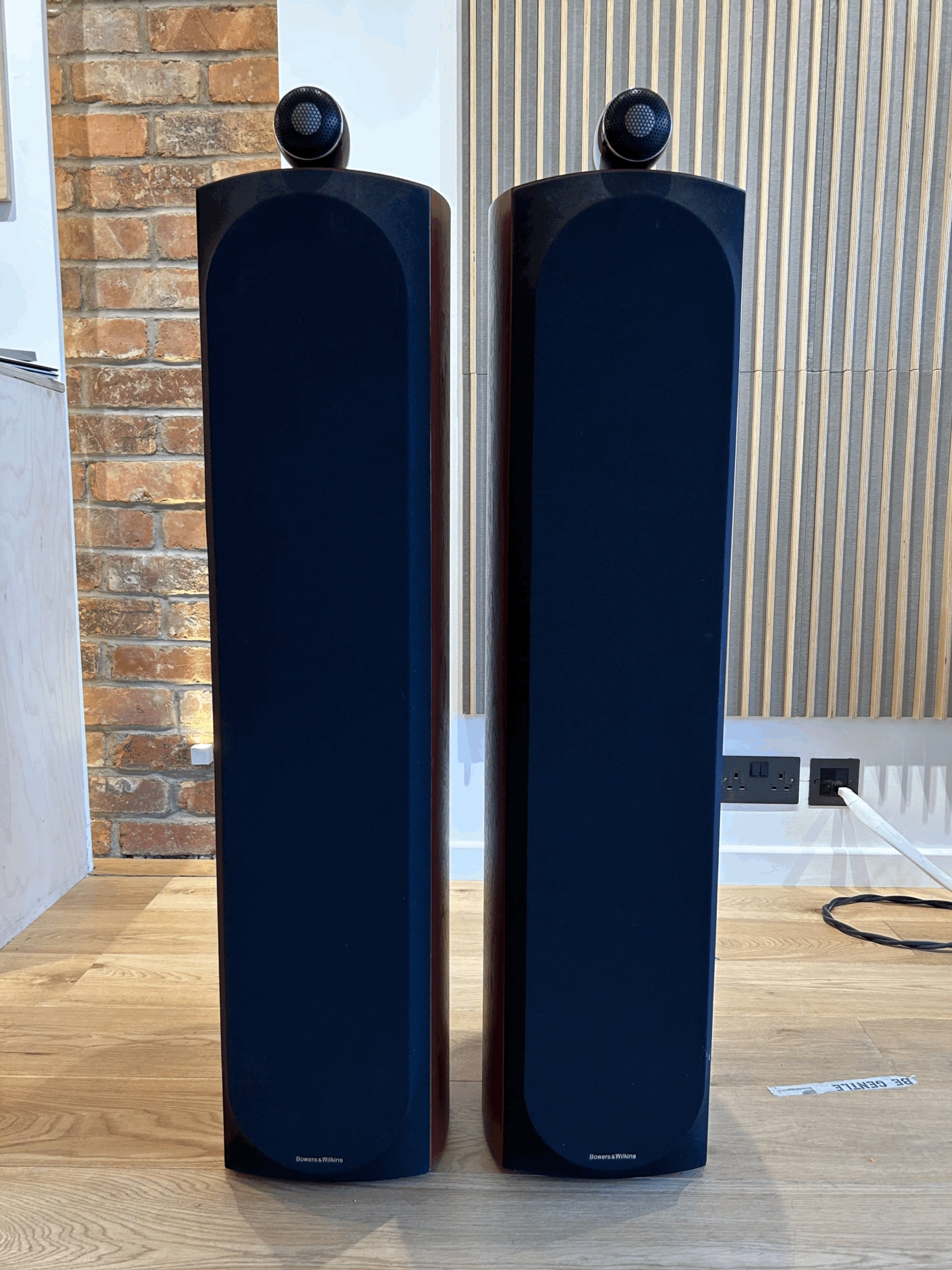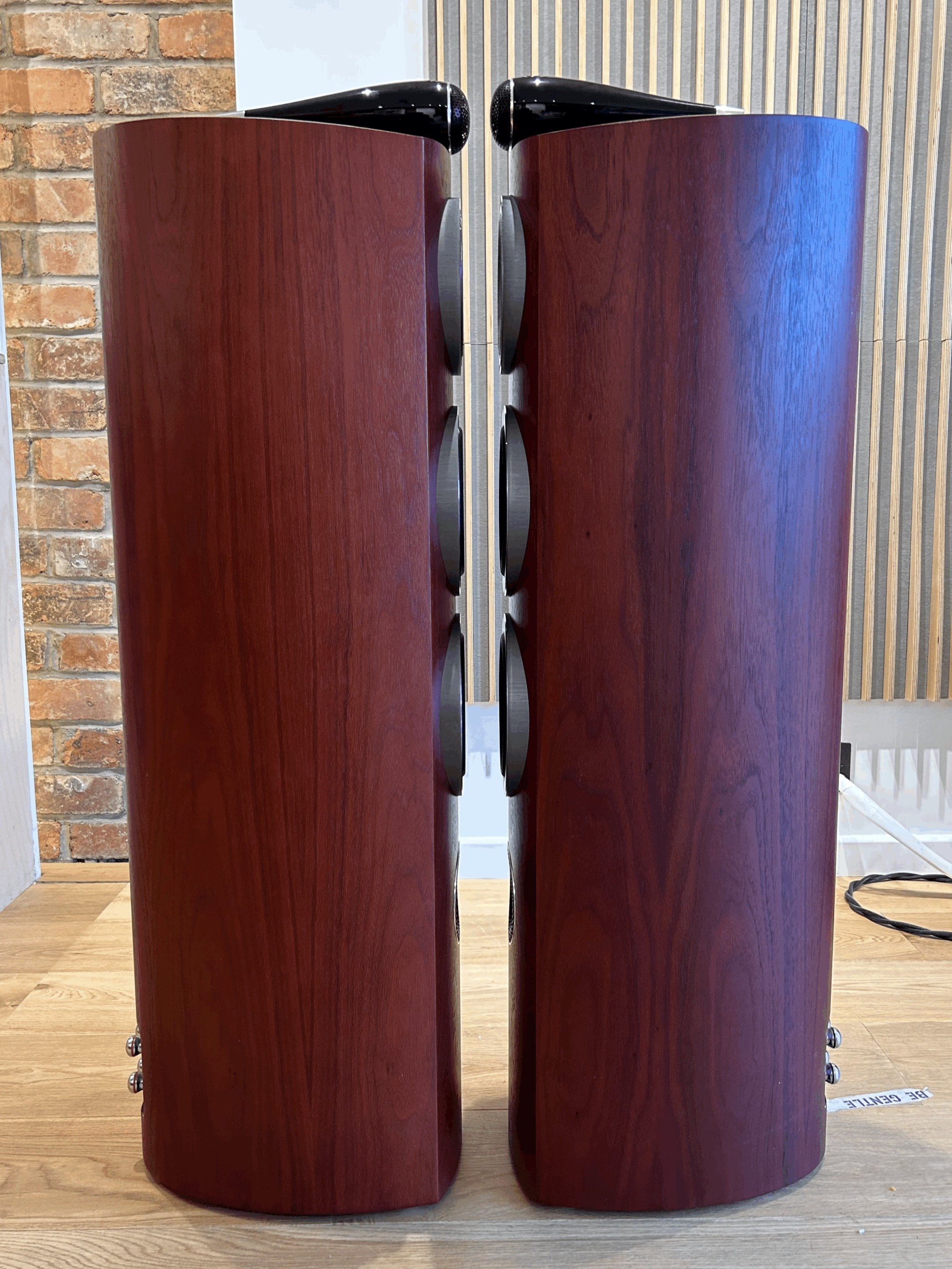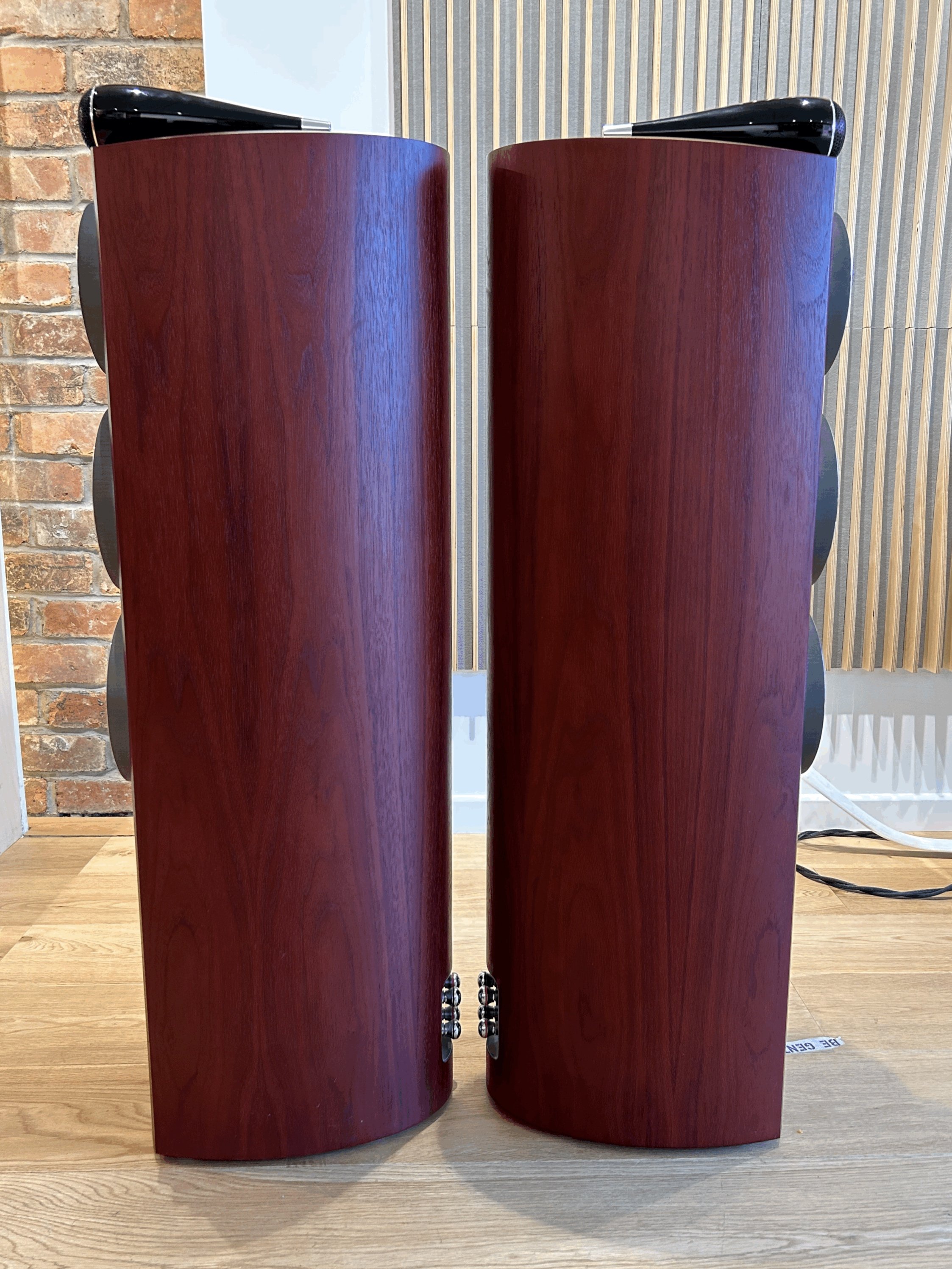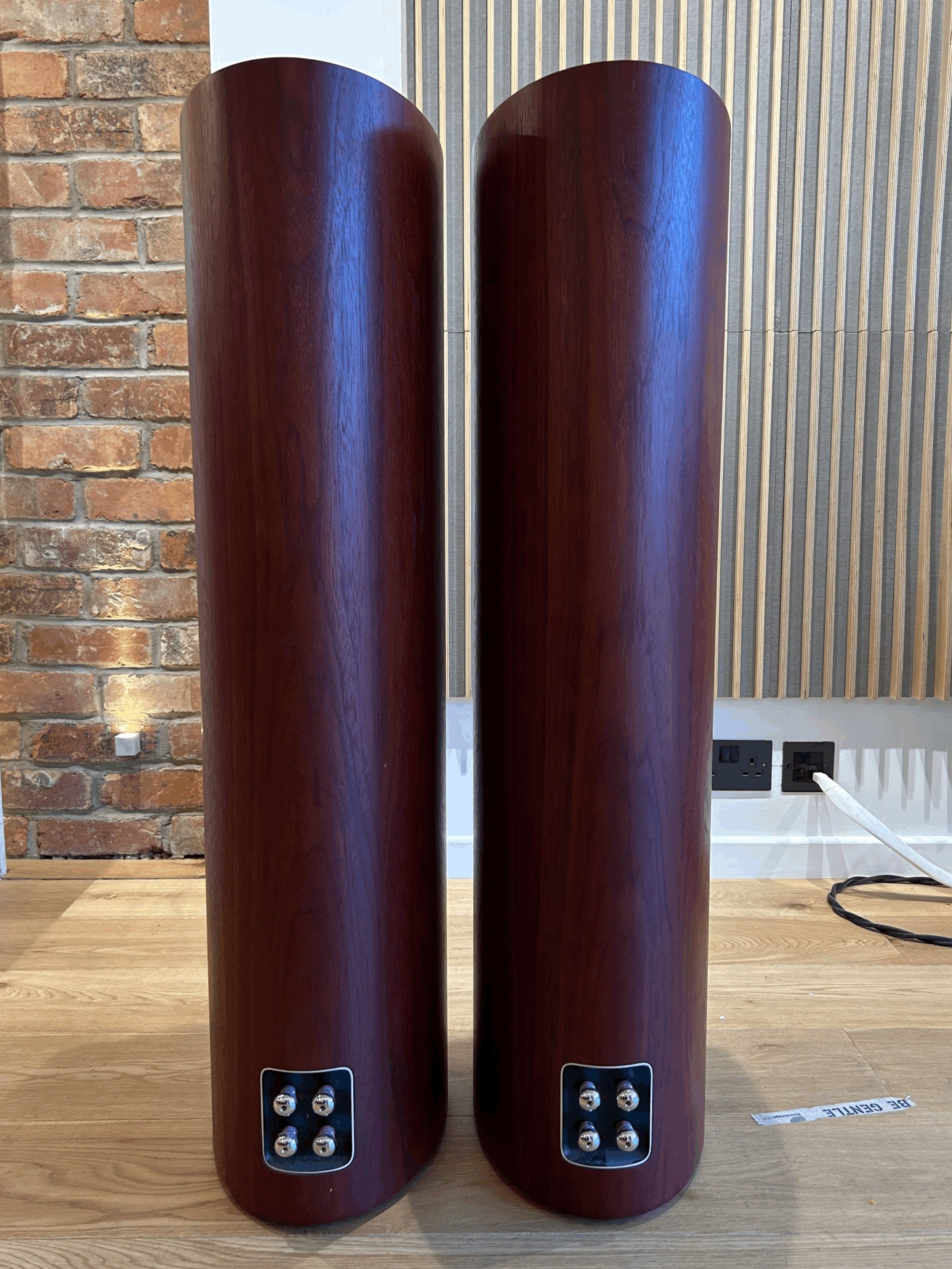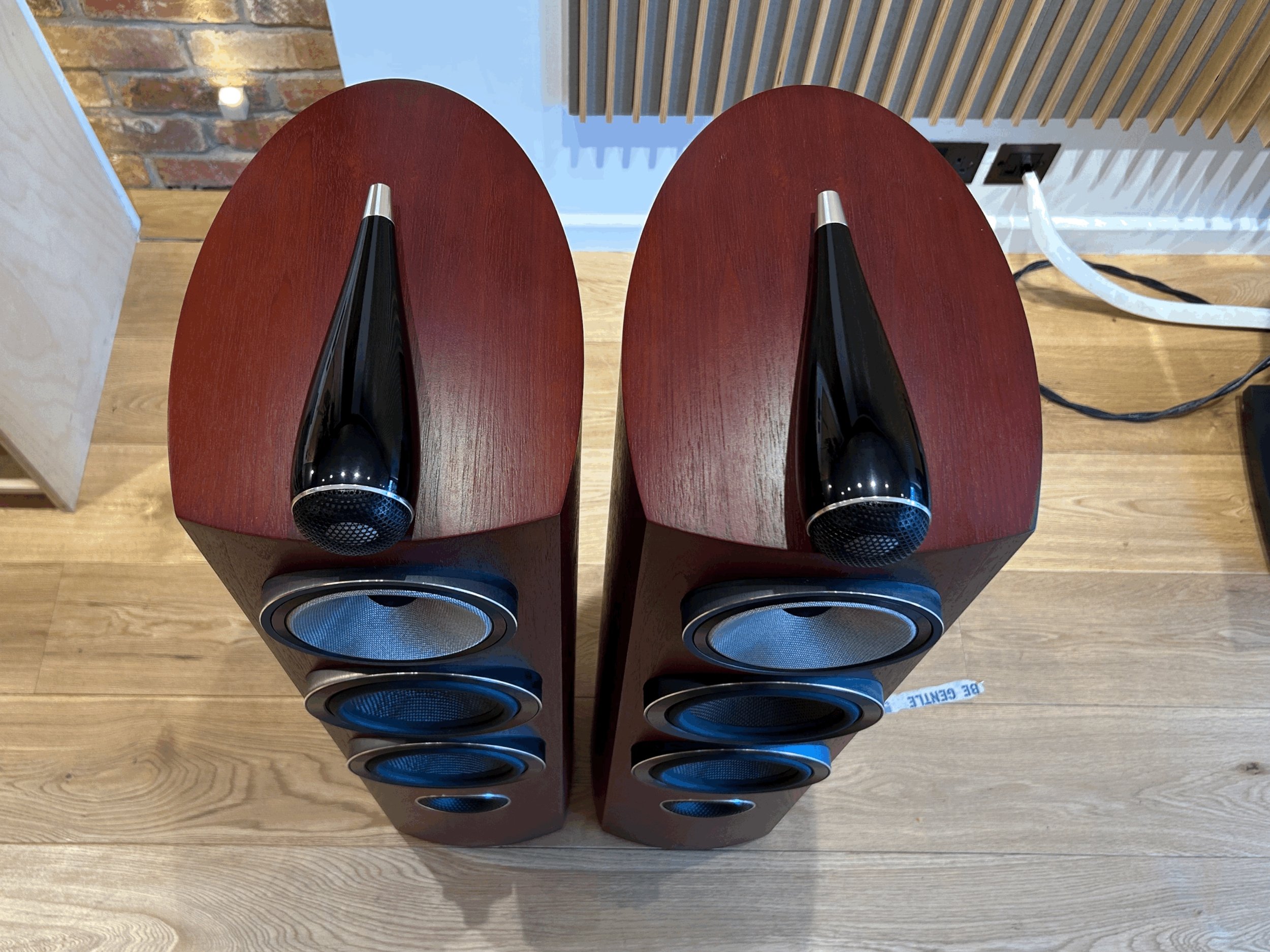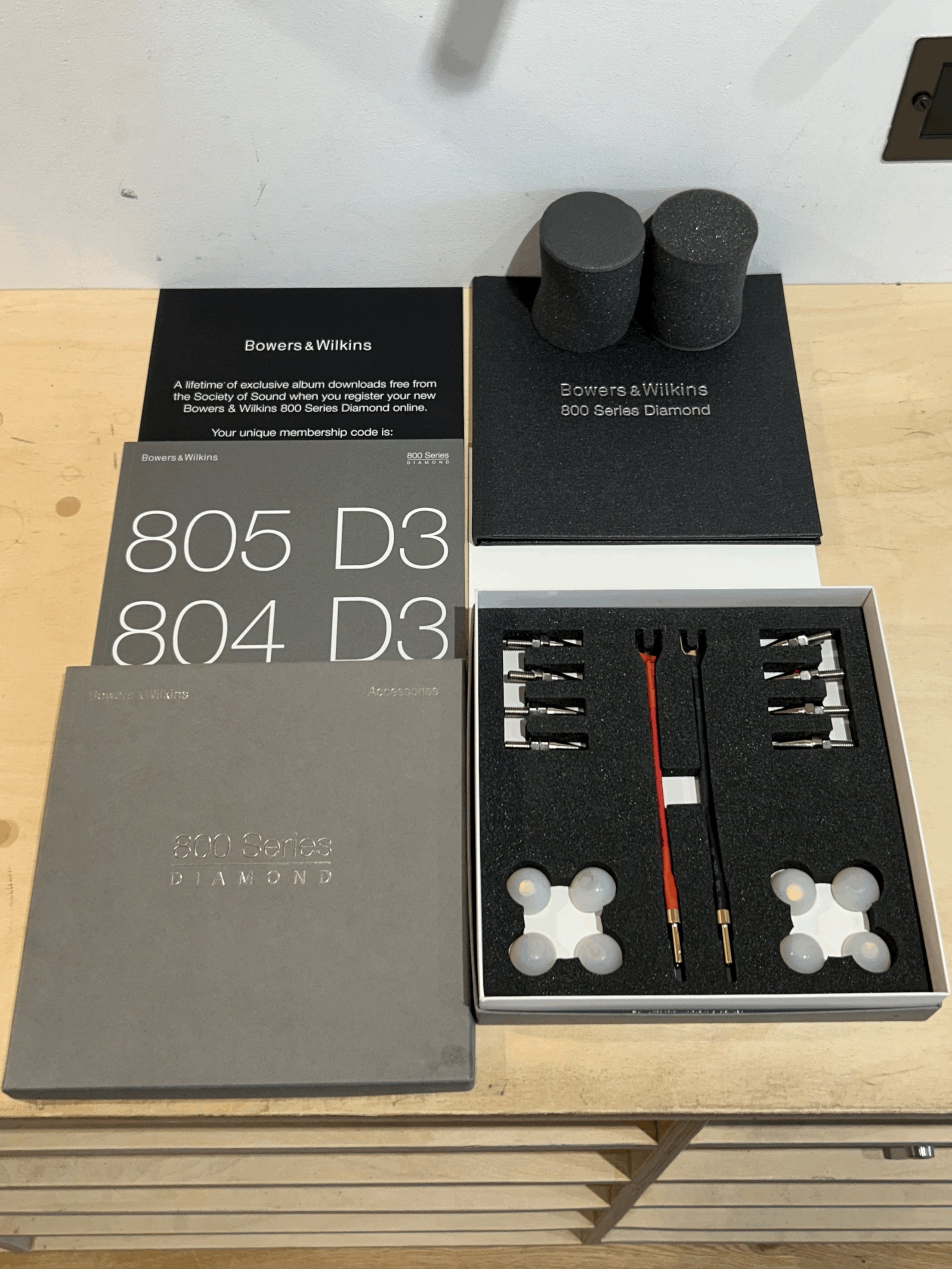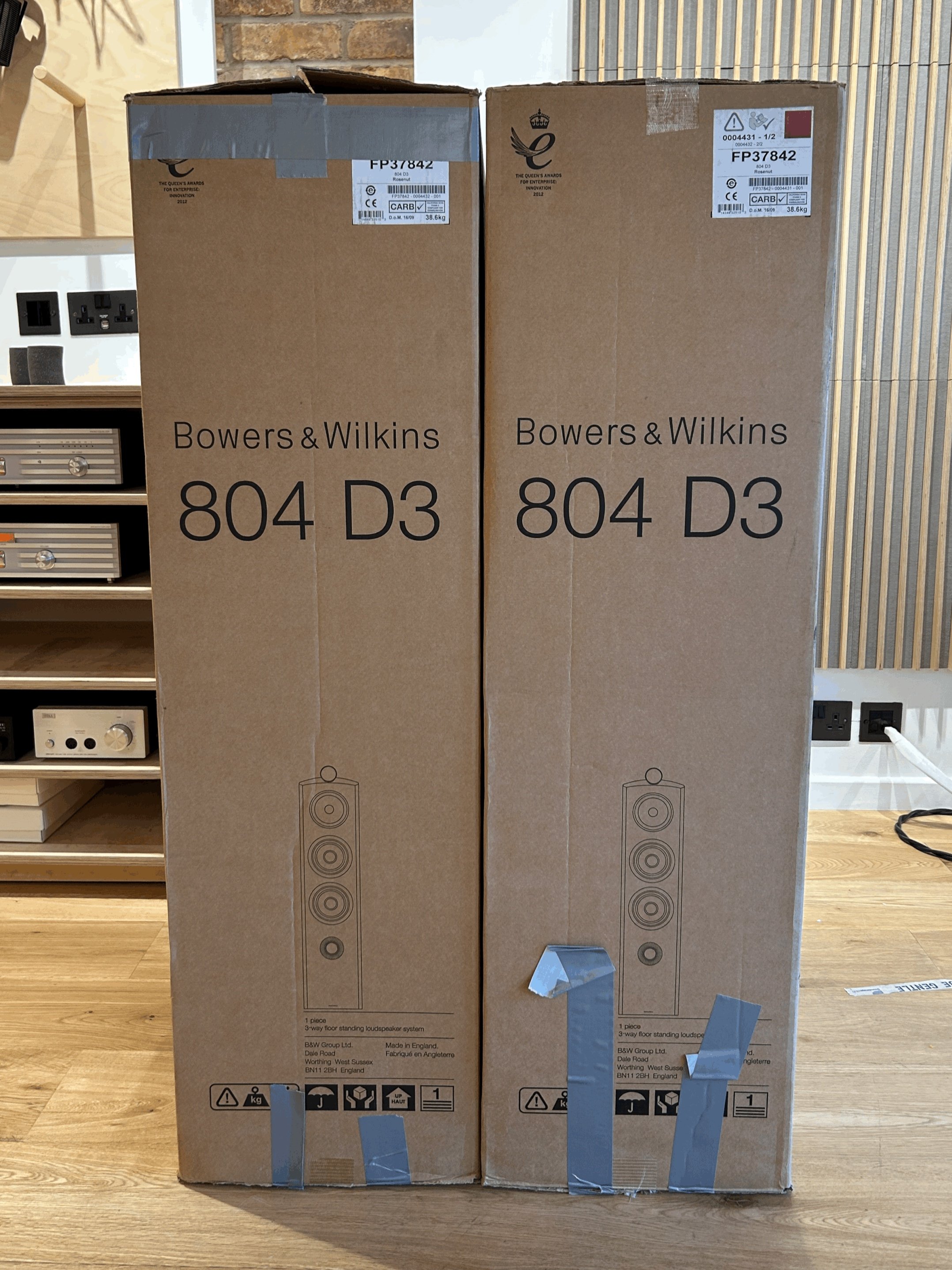Lyra Etna λ Lambda SL Moving Coil Cartridge
The Etna λ Lambda SL Moving Coil Cartridge is a high-end phono cartridge designed for audiophiles with high-gain phono stages or step-up transformers. It features a unique design with a solid titanium core, an asymmetric duralumin outer body, and bronze and stainless-steel resonance control rods to minimise internal vibrations and achieve exceptional sound quality.
Category Cartridges
Country Japan
Manufacturer Lyra
The Etna λ Lambda SL Moving Coil Cartridge is a high-end phono cartridge designed for audiophiles with high-gain phono stages or step-up transformers. It features a unique design with a solid titanium core, an asymmetric duralumin outer body, and bronze and stainless-steel resonance control rods to minimise internal vibrations and achieve exceptional sound quality.
Category Cartridges
Country Japan
Manufacturer Lyra
The Etna λ Lambda SL Moving Coil Cartridge is a high-end phono cartridge designed for audiophiles with high-gain phono stages or step-up transformers. It features a unique design with a solid titanium core, an asymmetric duralumin outer body, and bronze and stainless-steel resonance control rods to minimise internal vibrations and achieve exceptional sound quality.
Category Cartridges
Country Japan
Manufacturer Lyra
-
Designer
Jonathan CarrBuilder
Yoshinori MishimaType
Medium weight, medium compliance, low-impedance moving coil cartridgeStylus
Lyra-designed long-footprint variable-radius line-contact nude diamond (3μm× 70μm), slot-mountedCantilever system
Diamond-coated solid boron rod with short one-point wire suspension, directly mounted into cartridge body via high-pressure knife-edge systemBody
Machined titanium central core, anodized aluminiumCoils
Single layer, 6 N high-purity copper, chemically-purified high purity iron cross-shaped former, 1.52 ohm self impedance, 1.9μH inductanceOutput voltage
0.25mV@5 cm/sec., zero to peak, 45 degrees (CBS test record, other test records may alter results)Frequency range
10 Hz〜50 kHzChannel separation
Greater than 30dB at 1kHzCompliance Approx.
12× 10 cm/dyne at 100 HzCartridge body
Multi-material (titanium, duralumin, bronze, stainless steel) self-clamping construction with reduced-surface higher-pressure headshell contact area, predominately non-parallel shaping, phase-interference resonance-controlling mechanisms, and body threaded directly for mounting screwsCartridge mounting screws
2.6 mm 0.45 pitch JIS standardCartridge weight (without stylus cover)
9.2gDistance from mounting holes to stylus tip 9.52mm
Recommended tracking force
1.62 – 1.72gRecommended load directly into MC phono input
Detailed guidelines in instruction manual, finalize by listening.Recommended load via step-up transformer
Use a step-up transformer designed for 1 – 3 ohms cartridge impedance (step-up transformer’s output must be connected to 10kohm ~ 47kohm MM-level RIAA input, preferably via short, low-capacitance cable)Recommended tonearm
Medium to Medium-High mass arms recommended, which is bulk of tonearm market -
Free Delivery within Mainland UK.
60-Day Money-back Guarantee
Returns Policy
Etna λ Lambda SL Moving Coil Cartridge
The Etna SL is a special version of Etna for users with very high-gain, extra low noise phono stages, or alternatively a step-up transformer designed for phono cartridges of 2 – 3 ohms or less.
Description
Etna employs a solid titanium core structure machined with non-parallel surfaces to inhibit internal reflections wherever possible, but unlike Atlas (and Titan i before it), this is mated to a slightly undersized, asymmetric duralumin outer body that is designed to lock over the core like a very tightly-fitting jigsaw puzzle. The core and body are augmented with bronze and stainless-steel resonance control rods, then everything is pressure-fit together into a pre-stressed, solid, void-free structure which is comprised of multiple materials and complex internal shapes. The constrained-layer nature of this construction dramatically reduces the resonant signature of each material and creates a far more neutral-sounding body structure than otherwise possible, while the high body stiffness benefits transients, dynamics and resolution.
Linear transducers such as loudspeakers and phono cartridges are inherently inefficient devices – on the order of 5 to 10%. In other words, of the vibrational energy that enters a cartridge from the LP groove, only 5 to 10% will be converted into electrical signal. The cartridge’s internal damping system will dissipate some of the remaining 90 to 95%, but much of the excess vibrational energy will reflect inside the cartridge, creating internal echoes, smearing, and a general diminishing of fidelity. It is easy to demonstrate this with many cartridges – play a highly modulated LP with the power amp turned off, and bring your ear close to the cartridge. The “needle-talk” that you hear is excess vibrational energy which isn’t being controlled properly.
To help conduct this excess vibrational energy into the headshell, where it can be safely dissipated within the greater mass of the tonearm and turntable plinth, Lyra has traditionally mounted the cantilever directly into the cartridge body, resulting in a rigid, seamless connection between the cantilever assembly and tonearm headshell (as it happens, we remain the only manufacturer to do so).
To help conduct this excess vibrational energy into the headshell, where it can be safely dissipated within the greater mass of the tonearm and turntable plinth, Lyra has traditionally mounted the cantilever directly into the cartridge body, resulting in a rigid, seamless connection between the cantilever assembly and tonearm headshell (as it happens, we remain the only manufacturer to do so).
In the process of designing Atlas, Lyra discovered that in addition to coupling the cantilever to headshell with a rigid, unbroken path, further sonic gains could be realised by removing all objects and voids from the path. Atlas’ asymmetric shape was conceived partly for this purpose, to move the front magnet carrier, mounting screw and screw-hole out of the way of the mechanical path connecting cantilever to headshell.
Etna utilizes the same asymmetrical concept, but whereas Atlas offsets the screw and screwhole to one side, Etna moves the screw / screwhole all the way to the front of the cartridge – and interposes an additional bronze damping barrier between the screw / screwhole and the mechanical path linking cantilever to headshell.

